Valerie Chiang (b. 1992) is a photographer from North Carolina and currently resides in Los Angeles. She will graduate from the University of Southern California with a B.A. in Film Production at the end of this year. Today we look at her series recently shot in China titled “As The Dust Settles.”
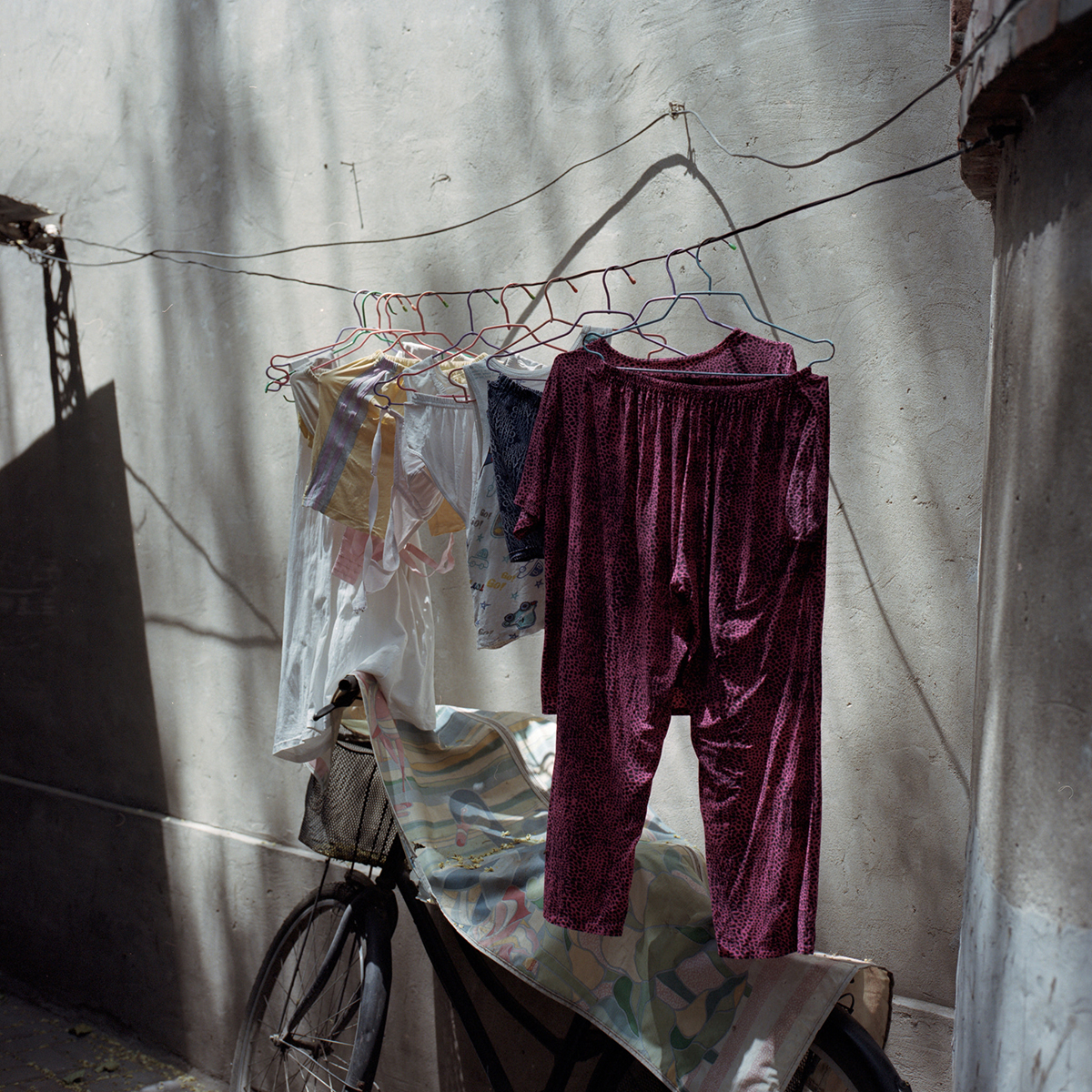 Laundry and bicycle in Beijing
Laundry and bicycle in Beijing
The photographs in this series were taken in July on a two-week family vacation to five different cities in the northeastern part of China. This nation has progressed greatly in the past couple of decades to become the global superpower it is today, but it’s also not without troubles, both political and cultural. I did not intend to create a project out of these photographs but as I was scanning and editing them, I noticed they loosely fit together into a quiet portrait of a beautiful yet still struggling country.
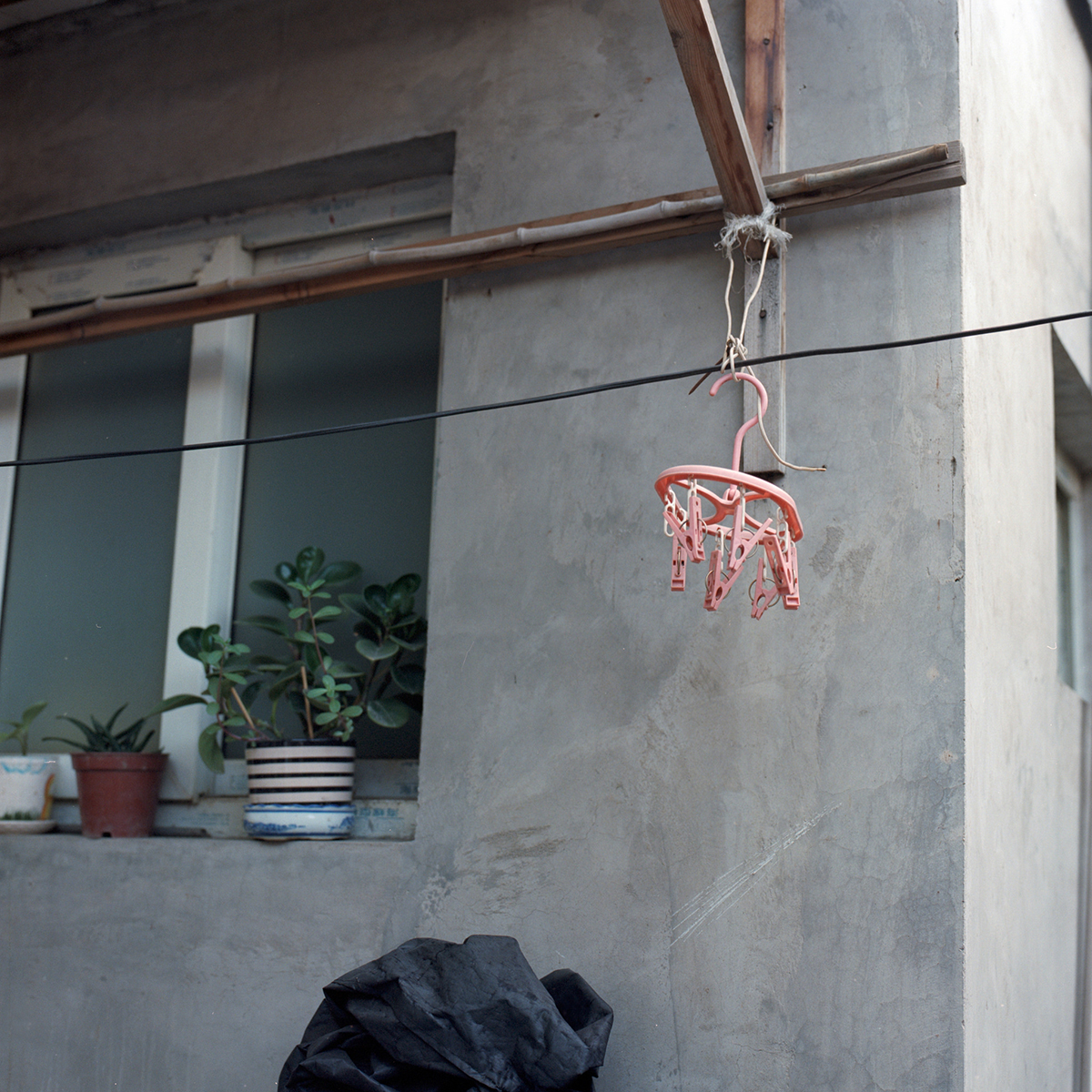 Empty hanging clips
Empty hanging clips
We recently had a chance to discuss Valerie’s recent travels and her experience with her first visit to China. The following is an interview transcribed from an online conversation between Aint-Bad assistant Kory Jean Kingsley and featured photographer Valerie Chiang.
Hi Valerie, how are things going lately? How long have you been back in the states?
Almost three weeks! Just moved into my new place yesterday afternoon in LA!
Ah LA, what a beautiful city! So where are you from originally?
I call North Carolina home now (I moved there when I was 10). And I lived for two years in Ohio when I went to school there. Then I transferred to USC, and now I’m in Los Angeles! So… since I moved back to LA and got a new place for at least a year, I guess LA is home now!
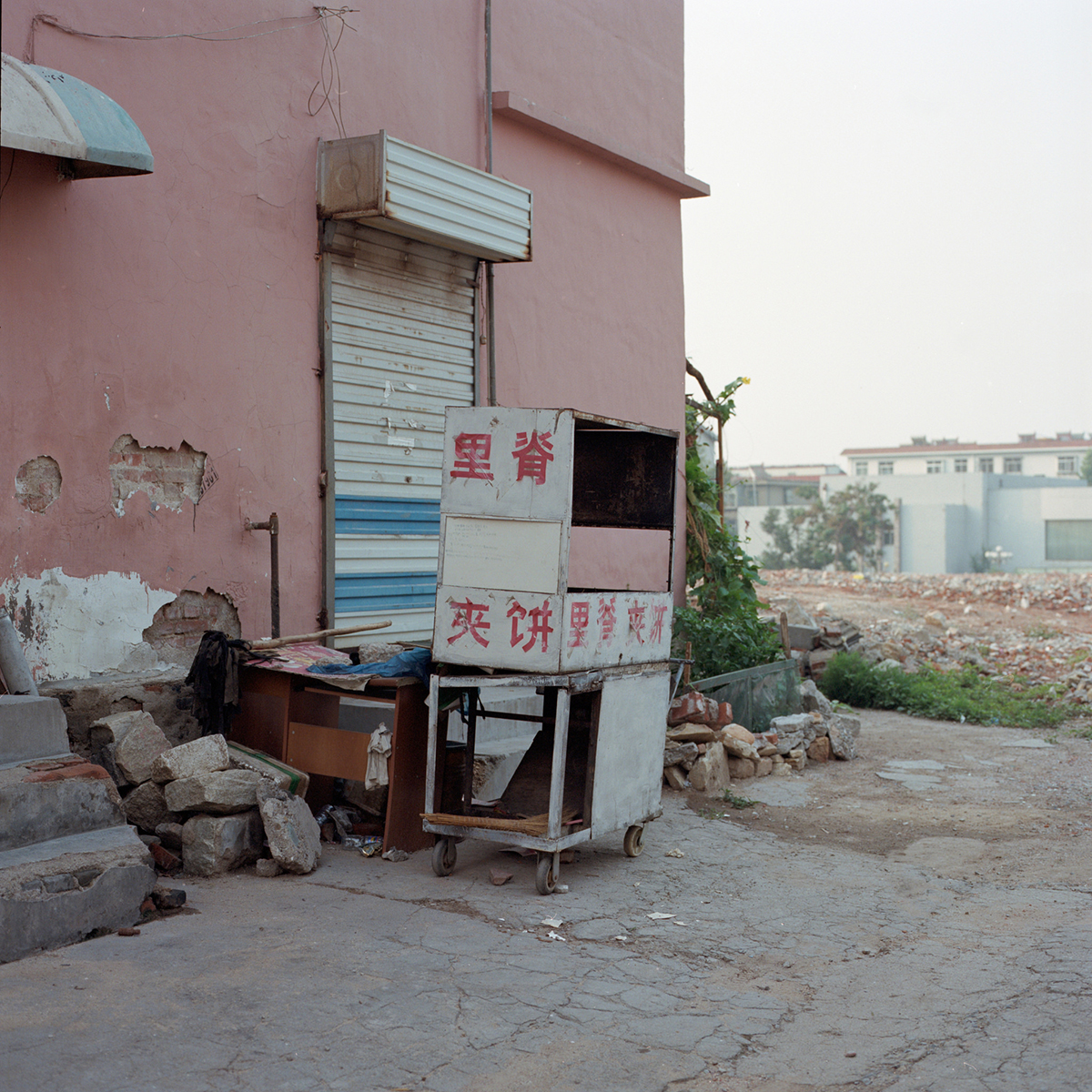 Cart selling Chinese pancakes
Cart selling Chinese pancakes
Ever since I first started following your work I noticed that you travel quite a bit and that’s where a lot of your work derives from. So tell me what was your recent travels to China was like?!
My family is from Taiwan, and I was actually born there, but up until this summer, I had never been to China. I remember reading books about China when I was little and looking at the illustrations and photographs of all the historic places there, so it was really amazing to see them in person for the first time. My dad was hired as a consultant for a university in Harbin, which is in the north-most province in China, for the summer so we went to visit him. His colleagues took us around several different parts of China, including Beijing and Xi’an, where the Terra Cotta Soldiers are. China is a very beautiful and proud country. It’s come a long way since the Qing dynasty fell in the early 20th century, but it still has a long way to go. The infrastructure is still rather weak, especially for a country that’s considered a global superpower now. But it has such a rich history! Everywhere you go, even a tiny little village, has an interesting story. Beijing is probably one of the most history large cities in China. There is a section of the city that is kept seperate and protected for its historic value. It was about to be destroyed recently but people fought to keep and preserve it.
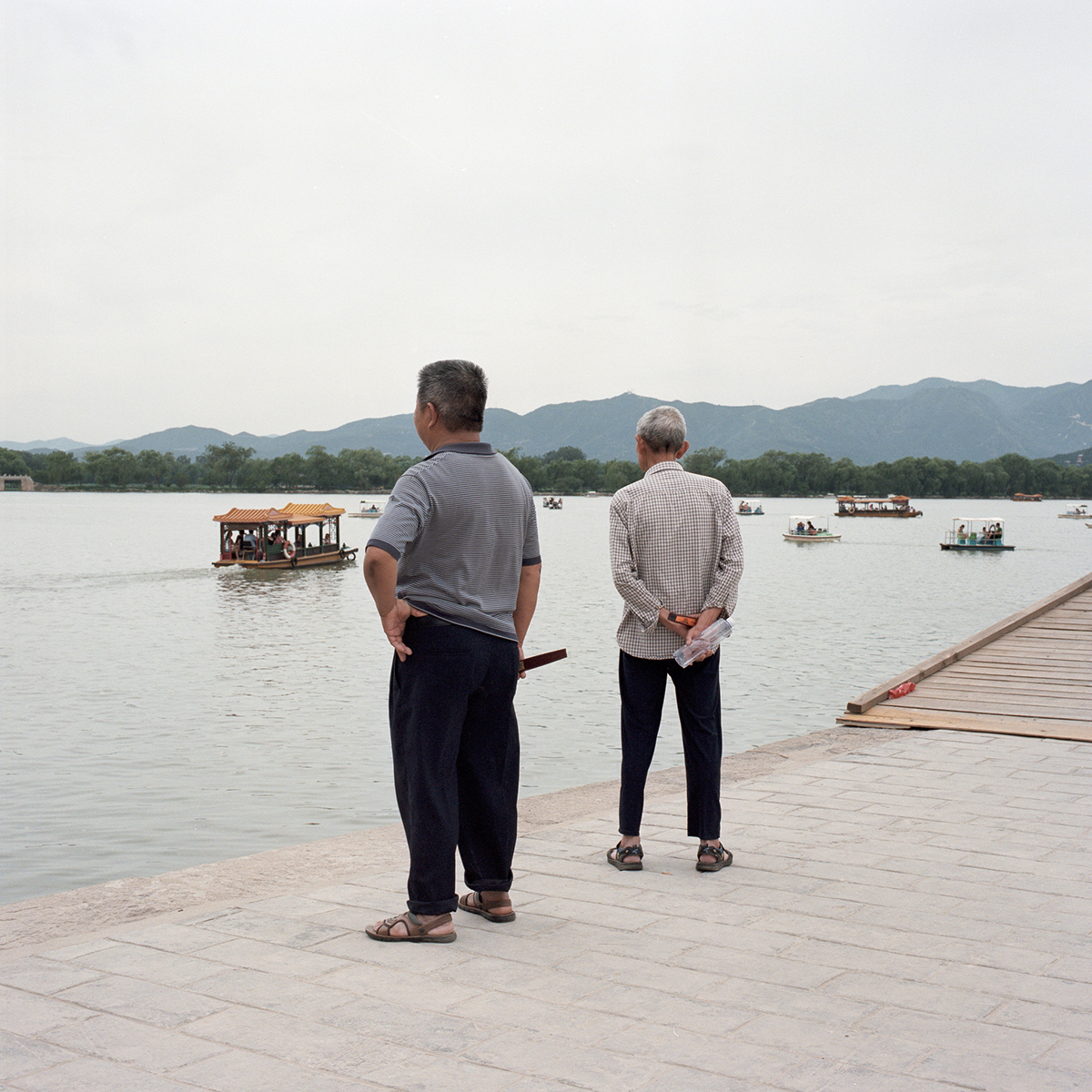 Two figures
Two figures
So was all of China as beautiful and lavish as you pictured? Were there some places that were less fortunate?
There were definitely places that were less fortunate. But even in more modernized cities like Beijing, there are plenty of problems you wouldn’t expect. For example, the city water is definitely not drinkable. Food safety is always a concern, as the regulations aren’t as strict nor as enforced as they are in the United States. And pollution is a huge problem in large cities, especially in the northern part of the country. It’s improving, but I think the root of the problem stems from the conservative mindset of the people who live there. China is still after all a communist country, and as far as anyone can see, it will remain one. But the younger generation is more forward-thinking, so there is definitely hope.
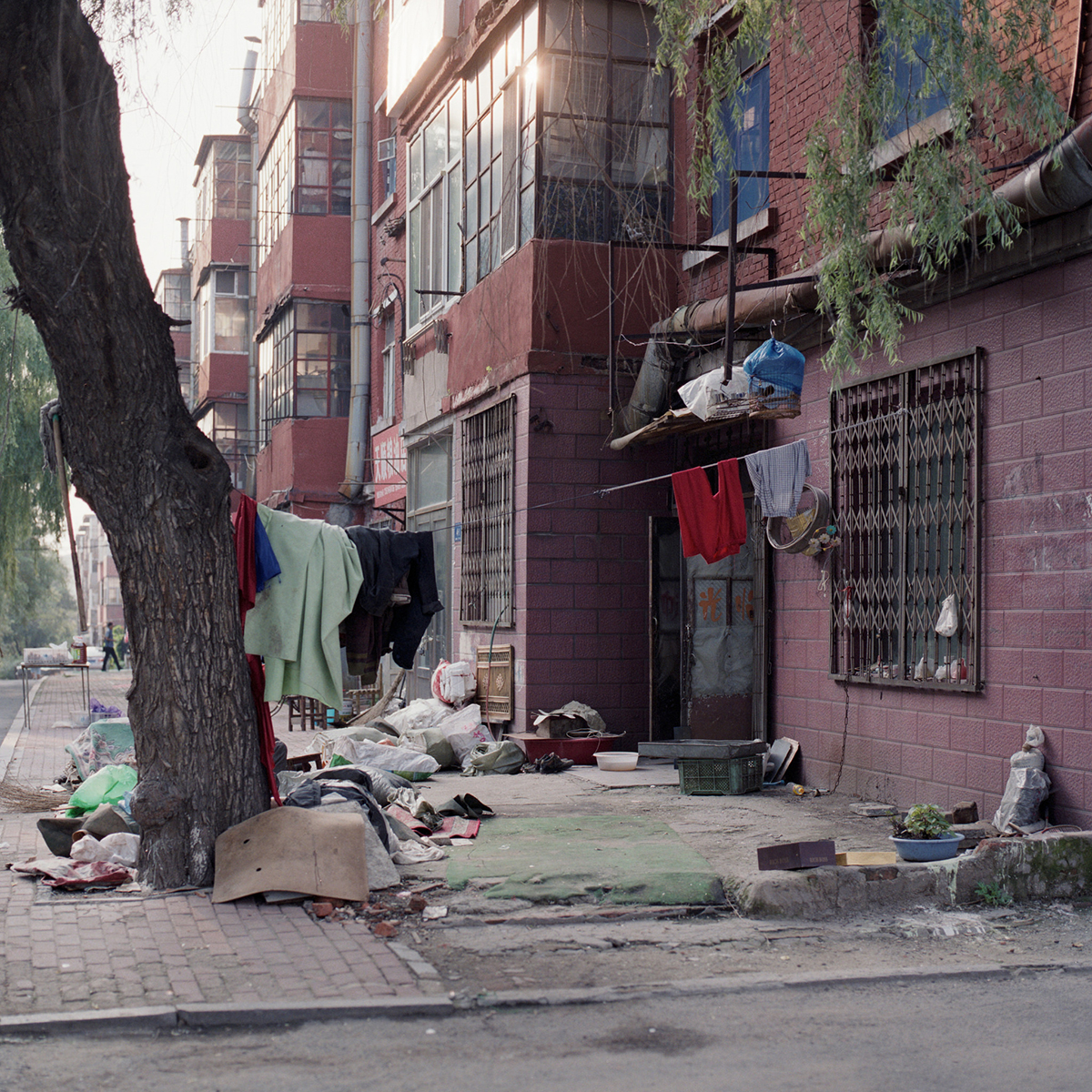 Apartments in Harbin
Apartments in Harbin
Do you have any good stories from when you were visiting these less fortunate areas?
Right down the street from where I took that photograph (Apartments in Harbin), there was a noodle shop owned by an old man. He looked very kind, and I’d seen him play with the stray dogs and cats on the street (which is quite rare — the general public’s attitude toward animals in China can be hostile). I approached him one evening and talked with him for a while. At first he was welcoming, but once I asked if I could photograph him. He refused and began to question my motives. I explained that I thought he was an interesting person and that I was a photographer who was just visiting the area. But he kept asking if I worked for the government and if I was going to “turn him in.” He eventually went inside his shop and didn’t come out again, so I left. It was a little disappointing but since he lived through a time when the country was undergoing major political changes, I understand where his mistrust was coming from.
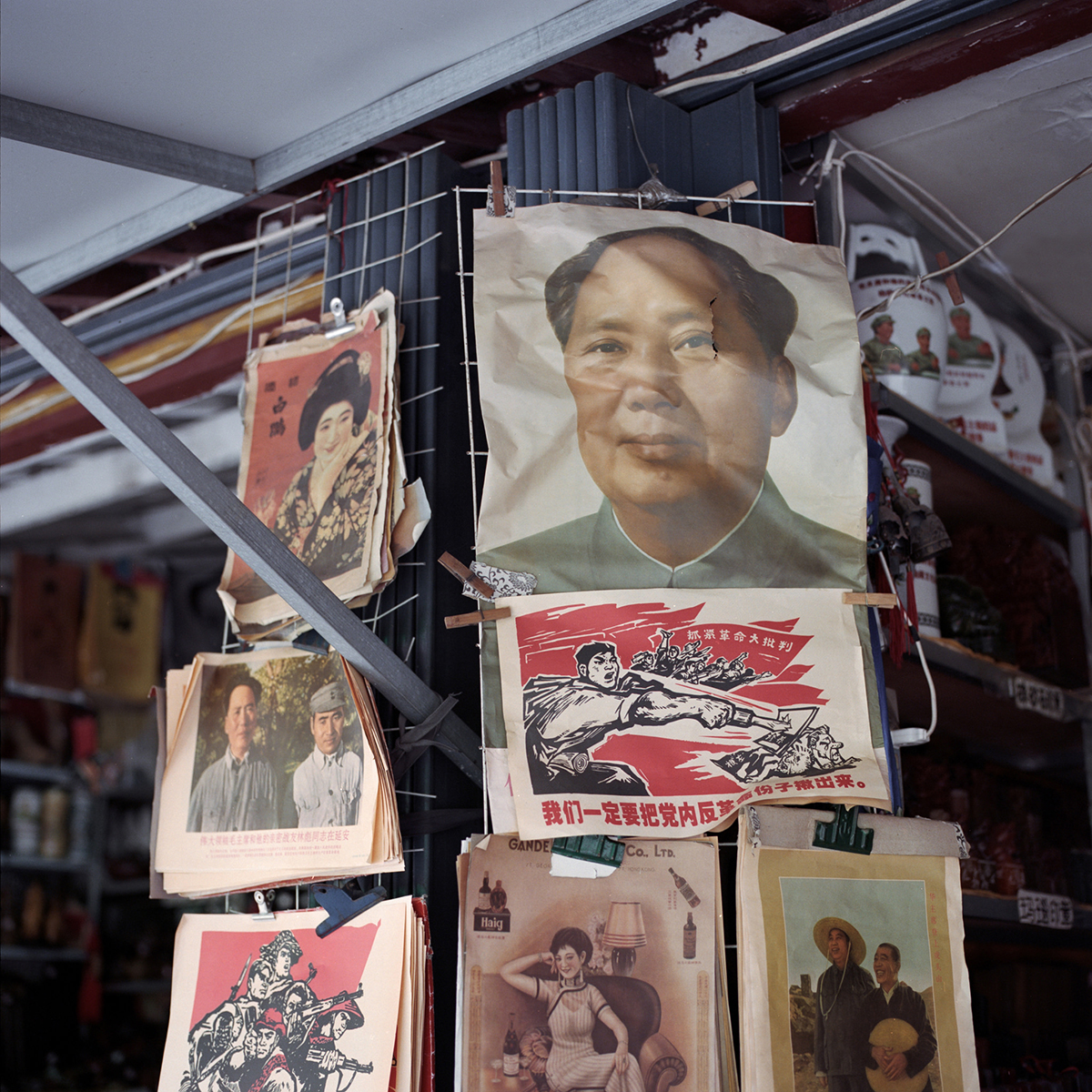 Torn poster of Mao Zedong
Torn poster of Mao Zedong
So I must ask, and I know you’re a film photographer, but what did you shoot this series with?
I shot this series on medium format color film. While I was scanning the negatives, I was happily surprised that most of the photographs I chose for the series had a pinkish hue to them, which was not intentional.
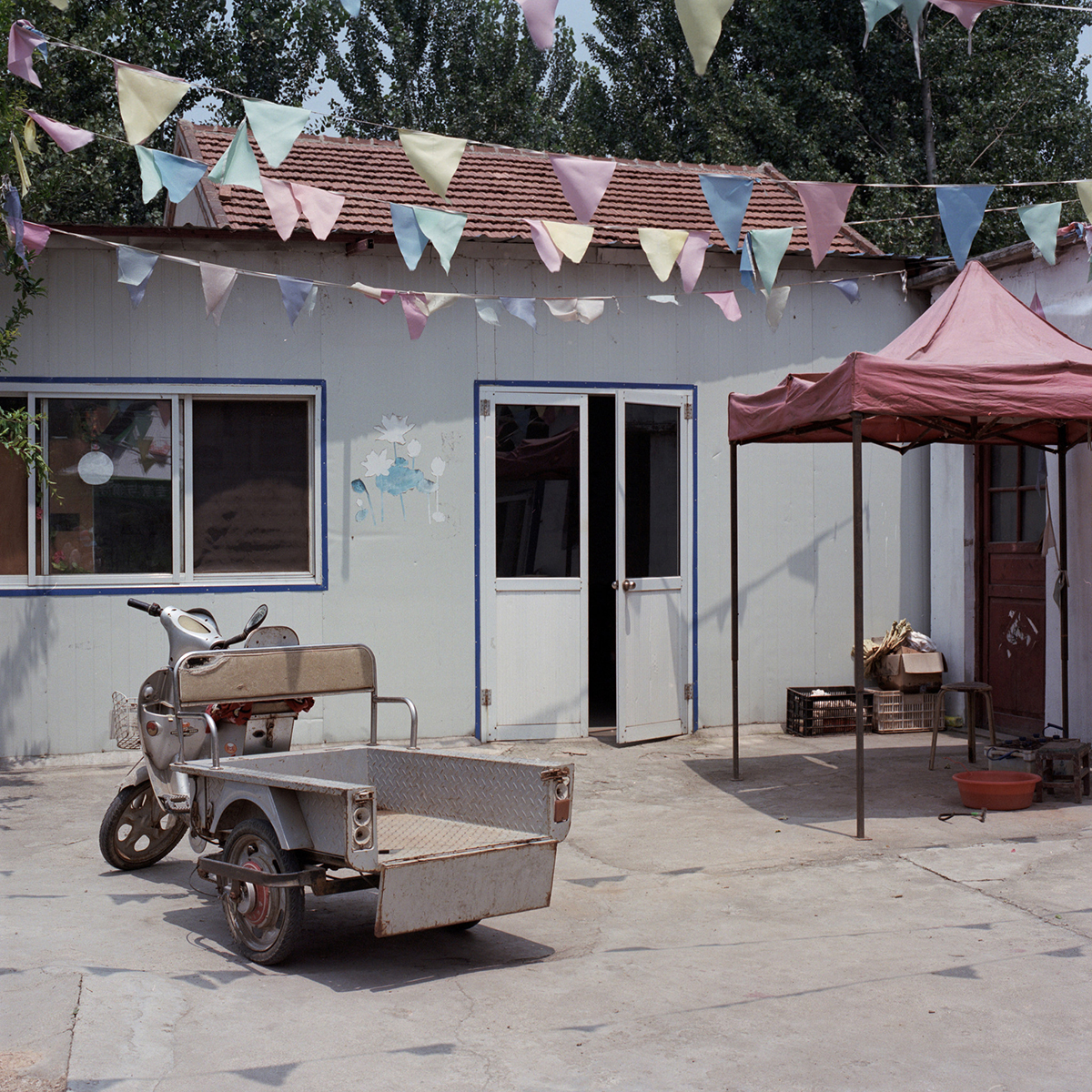 Restaurant in Shandong
Restaurant in Shandong
 Peony wallpaper
Peony wallpaper
So I think it would be great to wrap up the interview with your future plans. What do you see yourself doing with photography once you graduate with your B.A.?
I’m in school for film production — I came to USC with my heart set on becoming a cinematographer, but I’ve since changed my mind. I’m about to start working on a new series in the California desert which I’m very excited about (I have an undying love and obsession for the American west, which I don’t even understand myself.) and doing some testing for modeling agencies on the side to pay the bills. And I hope to just continue shooting, making work, finding more subjects I’m passionate about, and seeing where that takes me.
That sounds like a wonderful set plan for the next few years ahead of you! Thanks again for taking the time to discuss all of this with me. We’re excited to have your work featured on Aint-Bad!
No worries at all! Thank you so much for taking the time to interview me. I love everything you guys do at Aint-Bad, so I’m very honored.
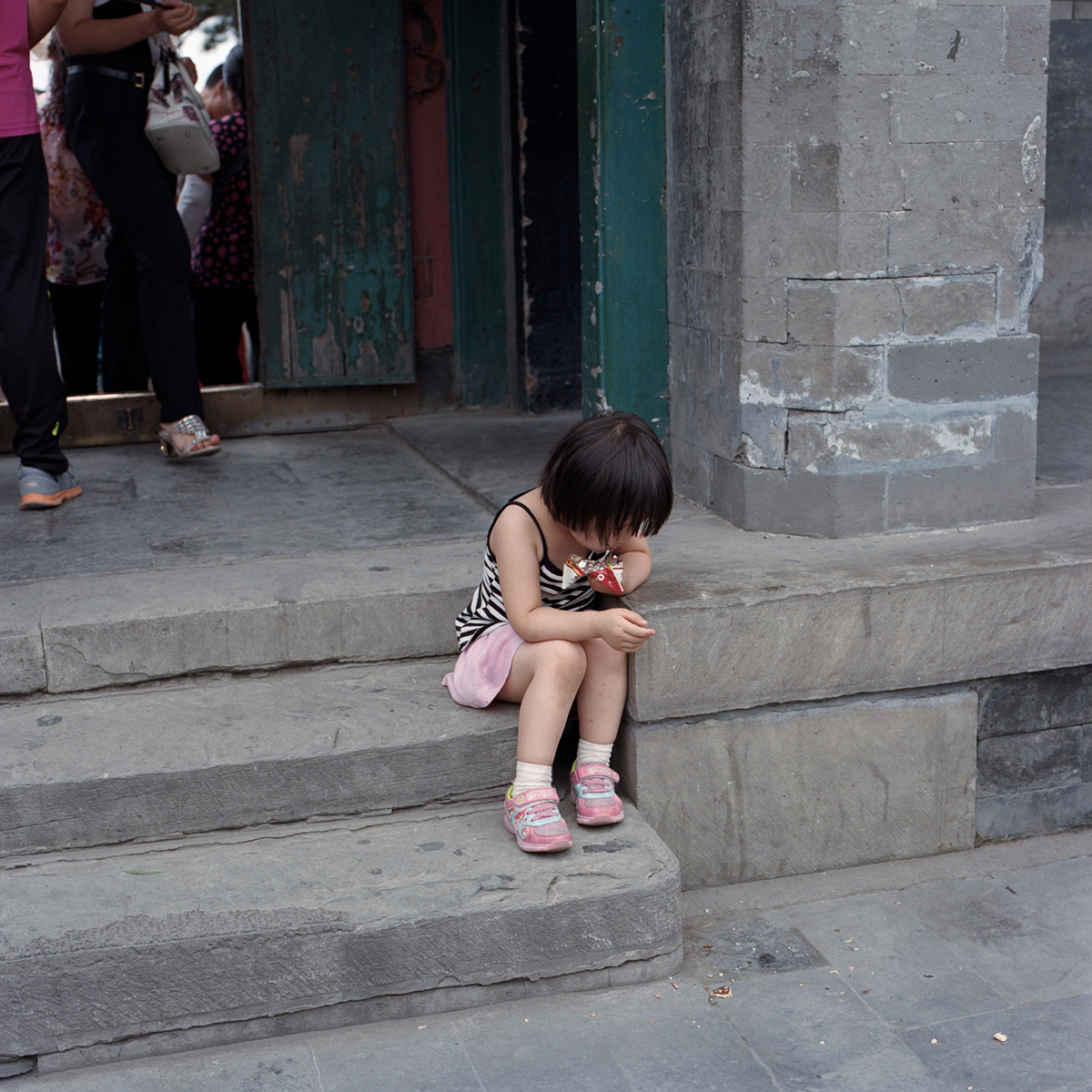 Girl eating crackers
Girl eating crackers
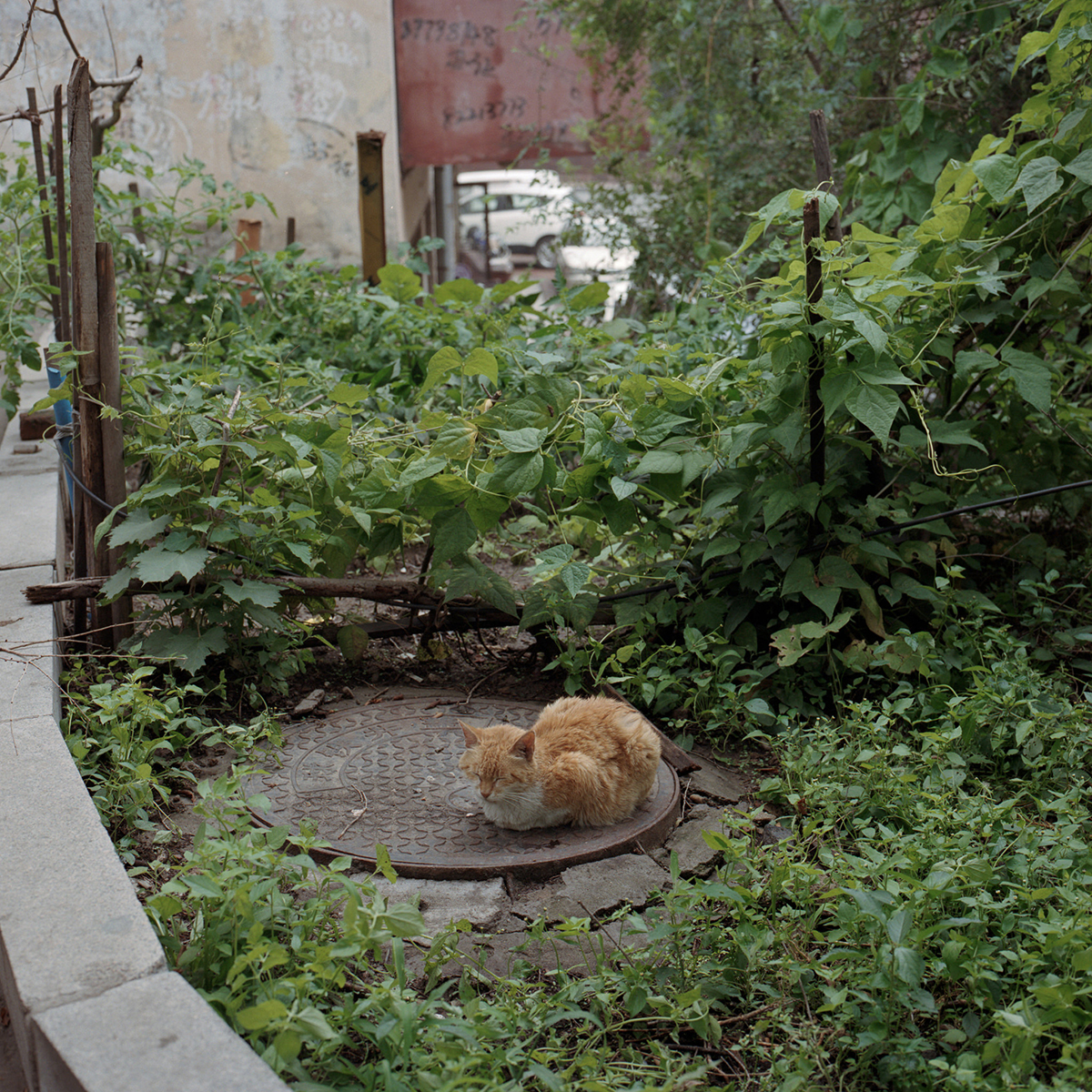 Sleeping cat
Sleeping cat
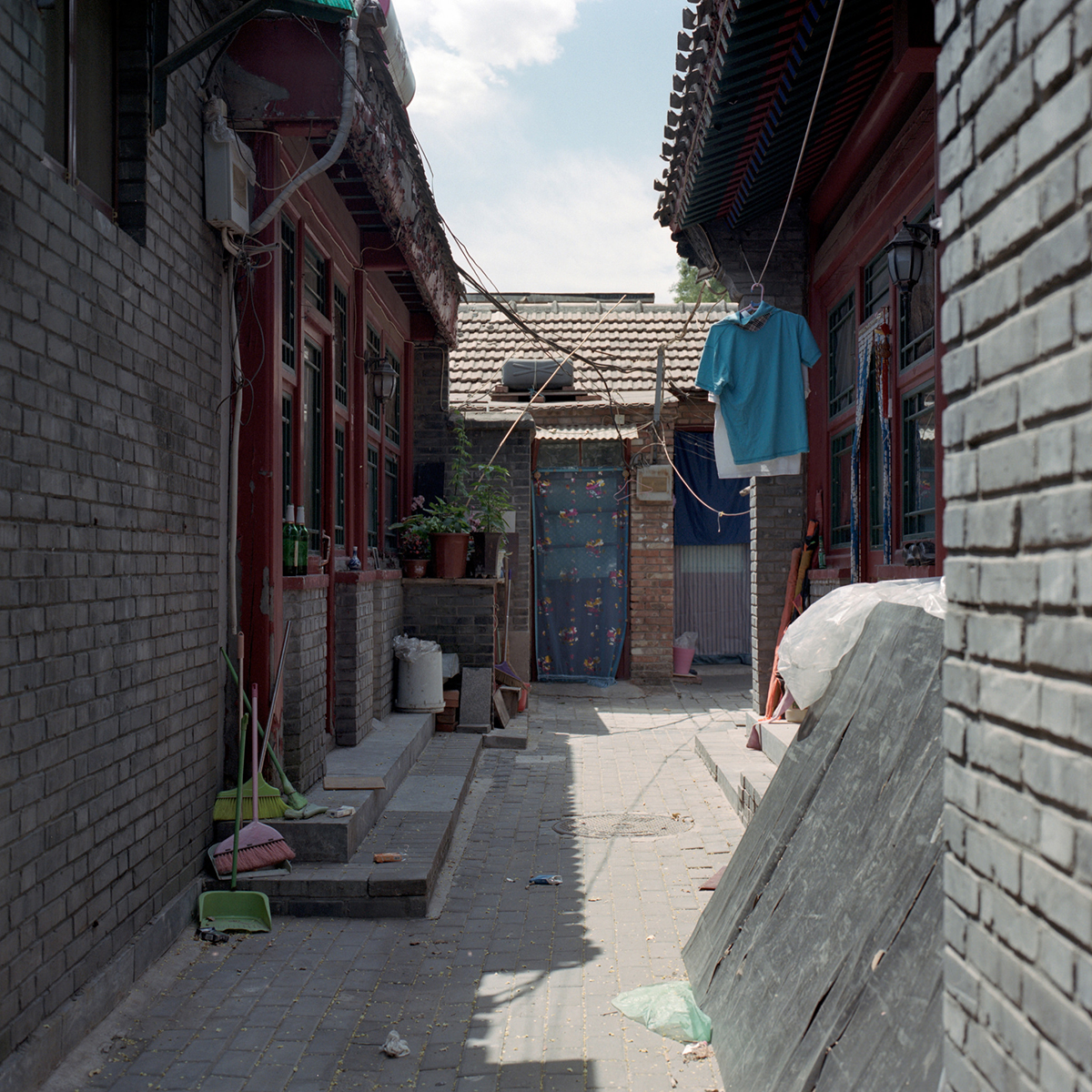 Small alley in Beijing
Small alley in Beijing
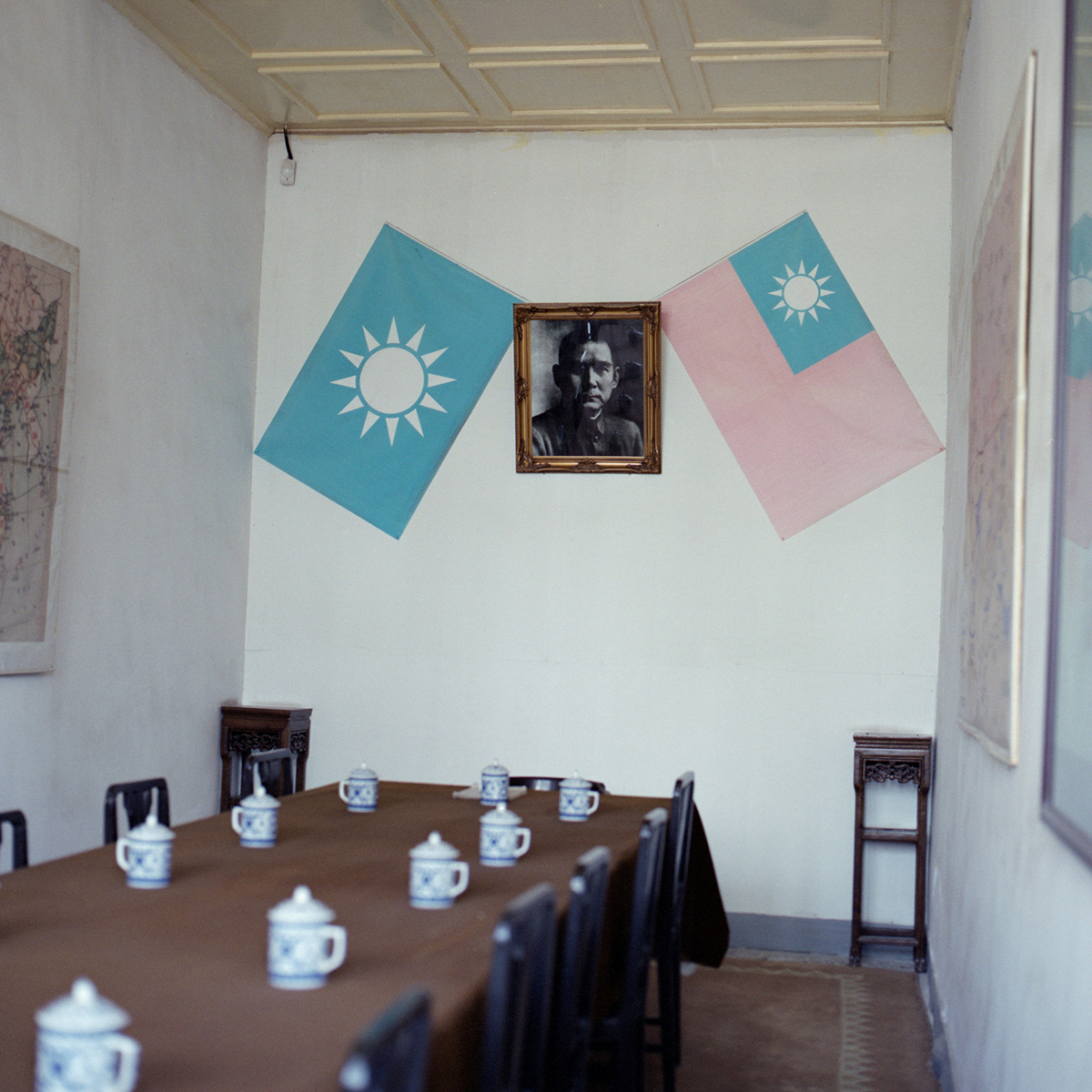 Portrait of Sun Yat Sen
Portrait of Sun Yat Sen
To view more of Valerie’s work please visit her website.